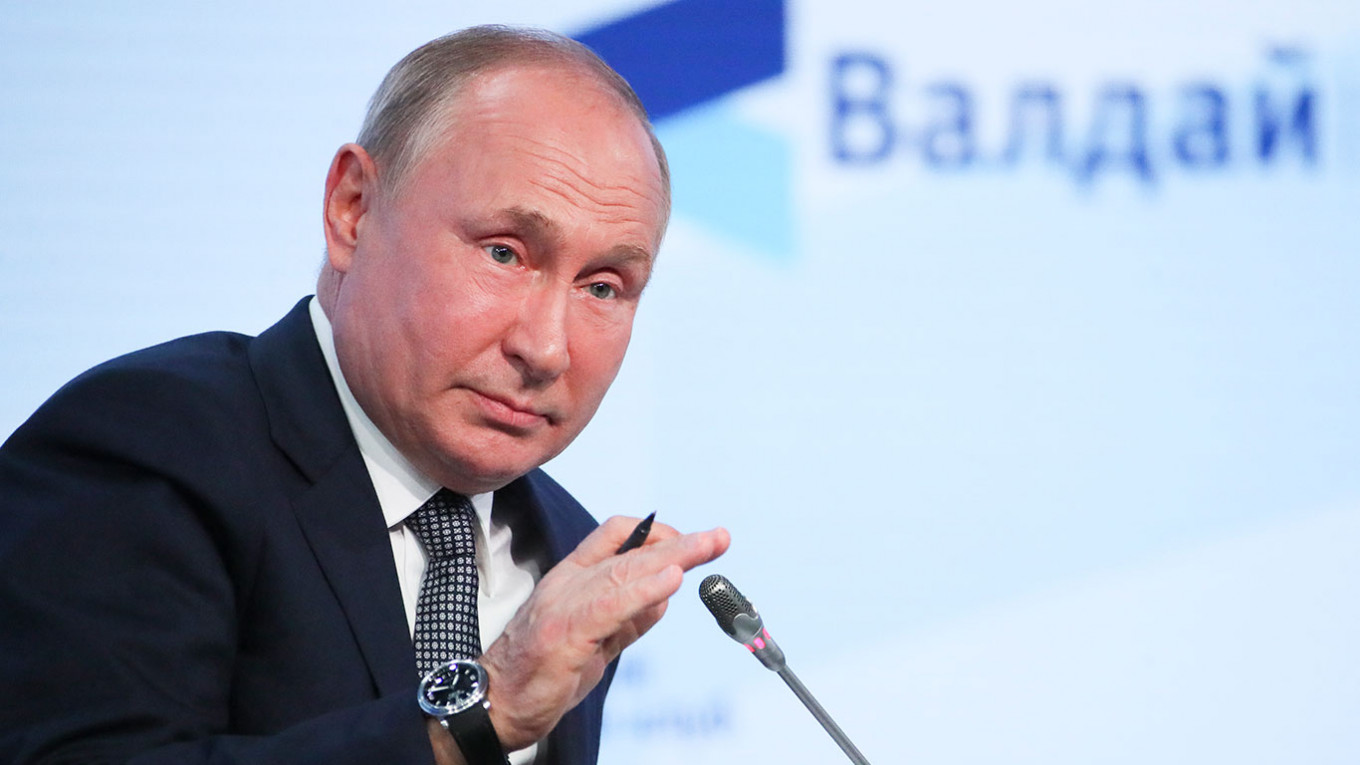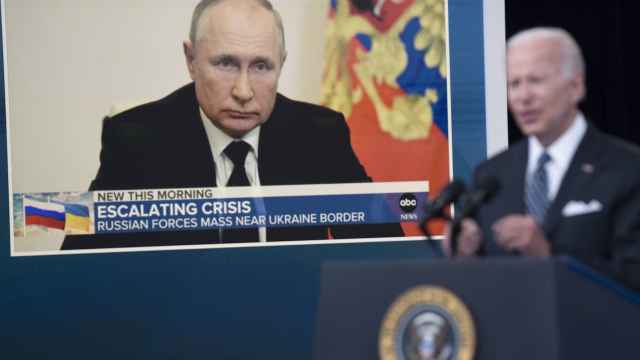There is much debate about a new “cold war” between Russia and the U.S., but one tactic illiberal politicians on both sides of the Atlantic agree on is embracing “traditional values” to cover up their own failings. Far-right demagogues from Moscow to Texas increasingly incite moral panic to stir up tensions and deflect from domestic troubles.
In late October, forever Russian President Vladimir Putin delivered his annual speech at the Valdai Discussion Club. Despite the pandemic entering its deadliest phase in Russia, he did not address public health measures and instead chose to rail against “cancel culture” and gender-segregated bathrooms in the West.
Putin’s speech is part of a deliberate, tried-and-tested playbook, both at home and abroad, to consolidate power and distract from governance failures by inflaming social tensions. It cannot be brushed aside as simply theatrics because it has real implications for an alignment of authoritarian tactics and manipulation of values across borders.
Since Russia introduced its 2013 law banning “homosexual propaganda,” it has become an enthusiastic exporter of conservative ideologies, sometimes to the least expected places. During the 2018 anti-government protests in Sudan, Russian so-called “political strategists” with ties to Yevgeny Prigozhin, a nefarious oligarch close to the Kremlin, instructed the Bashir regime to plant pro-LGBT flags among demonstrators to undermine their credibility.
Reinforcing its image as a normative counterweight to the West, the Kremlin can secure access to other authoritarian states and their resources.
Republican Governor Greg Abbott of Texas is faithfully using the same tactics of distraction. In the lead up to next year’s midterm and gubernatorial elections, he has managed to shift the conversation away from his mishandling of the pandemic, chronic energy supply problems, and growing voting rights restrictions, towards divisive social issues.
Last week he signed the controversial House Bill 25, which bans transgender children from participating in sports. Earlier this year he championed Senate Bill 8, now before the Supreme Court, banning abortions before most women know they are pregnant and holding criminally culpable those who “aid and abet” abortions.
Rather than occupying opposing sides of a new ideological Cold War, Republicans and global authoritarians around the world — who may come from different political, cultural and social contexts — use alarmingly similar tactics. They are manipulating ‘traditional values’ narratives, which serve as a cultural cudgel to incite the population, and cause real harm, especially to women, LGBTI people, and other minorities. And the damage is not just local. Globally, authoritarians are aligning to disrupt multilateral spaces and undermine democratic values by creating shadow, parallel systems.
Anti-abortion
A week after Putin’s Valdai speech, Russia signed the Geneva Consensus Declaration — an anti-abortion document, initiated by the Trump administration, that unites a coalition of largely authoritarian governments with abysmal records on women’s rights and human rights. On that same day, both the U.S. Senate and House Republicans introduced a resolution celebrating the declaration's first anniversary.
The consensus’ grandiose name provides cover for a toothless anti-abortion manifesto. Despite the fact that it carries no political weight, is not legally binding, nor provides mechanisms for government accountability, boosters are presenting it as a normative document that commits signatory countries to anti-abortion policies.
It is telling that the Russian government did not even bother to put out a press release or champion its signature in state media. Most Russians have relatively progressive — or at least apathetic — views on reproductive rights. Despite this, the consensus is a symbol of an alarming trend, and an attempt to consolidate a global conservative vision.
Putin joins a crowded field of autocrats aligning themselves around a regressive set of social values as a tactic to distract from self-manufactured disasters at home. When Putin says Westerners should “steer clear of our home, we have a different viewpoint,” it is a smokescreen to strengthen his own grip on power and eliminate dissent.
We should better understand these shared authoritarian strategies so their playbook is less effective. Cross border journalistic investigations should expose how tactics overlap between countries and cultures, and expose the money flows behind them.
Investigating how targeted populations are impacted by these harmful policies must be top of the agenda for global policy makers. It is also crucial to remember that it is not just minorities who suffer. The erosion of democratic values affects us all.
A Message from The Moscow Times:
Dear readers,
We are facing unprecedented challenges. Russia's Prosecutor General's Office has designated The Moscow Times as an "undesirable" organization, criminalizing our work and putting our staff at risk of prosecution. This follows our earlier unjust labeling as a "foreign agent."
These actions are direct attempts to silence independent journalism in Russia. The authorities claim our work "discredits the decisions of the Russian leadership." We see things differently: we strive to provide accurate, unbiased reporting on Russia.
We, the journalists of The Moscow Times, refuse to be silenced. But to continue our work, we need your help.
Your support, no matter how small, makes a world of difference. If you can, please support us monthly starting from just $2. It's quick to set up, and every contribution makes a significant impact.
By supporting The Moscow Times, you're defending open, independent journalism in the face of repression. Thank you for standing with us.
Remind me later.






